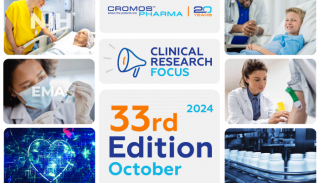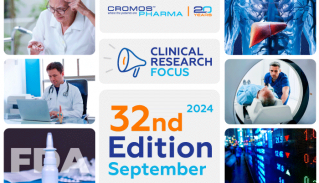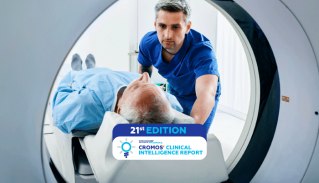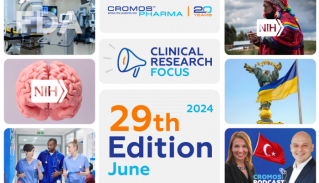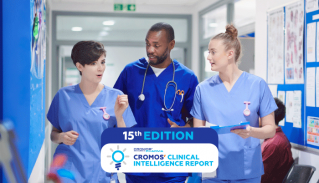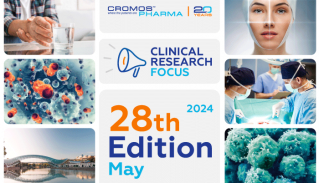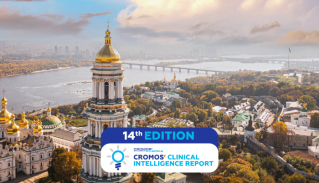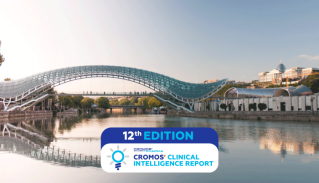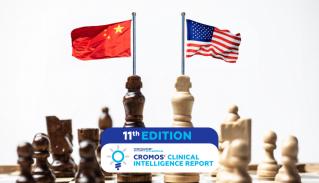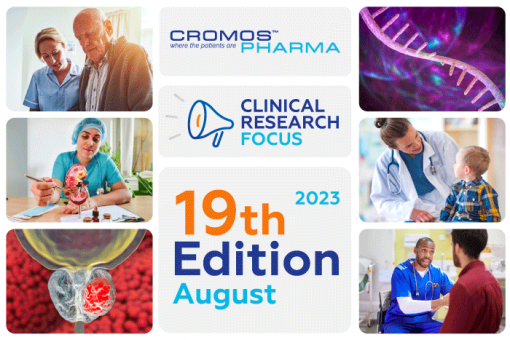
Clinical Research Focus. 19th Edition
Addressing the Underrepresentation of Older Adults in Cancer Clinical Trials: Advancing Inclusion for Improved Care
The underrepresentation of older patients in cancer clinical trials poses a significant concern as it limits the generalizability of trial results to the broader population, particularly older adults who are affected by cancer more frequently. Various factors contribute to the exclusion of older participants, including age-related eligibility criteria, preexisting conditions, polypharmacy, functional limitations, and exclusion from recruitment strategies.
In the absence of evidence from clinical trials, clinicians and patients seek alternative ways to predict how age influences treatment response. To minimize side effects and optimize treatment outcomes in older adults, providers may adjust the dose or duration of treatment. However, these adjustments are often made without clear and specific guidance.
Please follow the link to learn more.
FDA Approves New Drug to Prevent RSV in Babies and Toddlers
 The U.S. Food and Drug Administration (FDA) has approved Beyfortus (nirsevimab-alip) for preventing Respiratory Syncytial Virus (RSV) lower respiratory tract disease in neonates, infants during their first RSV season, and children up to 24 months of age vulnerable to severe RSV disease through their second RSV season. Beyfortus is a monoclonal antibody administered as a single intramuscular injection to provide protection during the RSV season. The approval comes after three clinical trials demonstrated its efficacy in reducing the risk of medically attended RSV lower respiratory tract infections. The treatment was well-tolerated, and possible side effects included rash and injection site reactions. Beyfortus should not be given to infants and children with a history of serious hypersensitivity reactions to its components. Beyfortus received a Fast Track designation for this indication.
The U.S. Food and Drug Administration (FDA) has approved Beyfortus (nirsevimab-alip) for preventing Respiratory Syncytial Virus (RSV) lower respiratory tract disease in neonates, infants during their first RSV season, and children up to 24 months of age vulnerable to severe RSV disease through their second RSV season. Beyfortus is a monoclonal antibody administered as a single intramuscular injection to provide protection during the RSV season. The approval comes after three clinical trials demonstrated its efficacy in reducing the risk of medically attended RSV lower respiratory tract infections. The treatment was well-tolerated, and possible side effects included rash and injection site reactions. Beyfortus should not be given to infants and children with a history of serious hypersensitivity reactions to its components. Beyfortus received a Fast Track designation for this indication.
Please follow the link to learn more.
New Atlas of Human Kidney Cells to Help Unlock Kidney Disease Research
 A nationwide research team funded by the National Institutes of Health (NIH) has achieved a major breakthrough in understanding and treating kidney disease by creating the most comprehensive atlas of the human kidney. The Kidney Tissue Atlas, part of the Kidney Precision Medicine Project (KPMP), provides detailed information on 51 kidney cell types, 28 cellular states representing injury or disease, raw gene data, and interactive 3D models. This valuable resource will aid researchers in comparing healthy kidney cells to those affected by kidney disease, potentially leading to better insights into the factors contributing to kidney disease progression, failure, or recovery. The goal is to discover new treatments for chronic kidney disease (CKD) and acute kidney injury (AKI), which are significant global health challenges.
A nationwide research team funded by the National Institutes of Health (NIH) has achieved a major breakthrough in understanding and treating kidney disease by creating the most comprehensive atlas of the human kidney. The Kidney Tissue Atlas, part of the Kidney Precision Medicine Project (KPMP), provides detailed information on 51 kidney cell types, 28 cellular states representing injury or disease, raw gene data, and interactive 3D models. This valuable resource will aid researchers in comparing healthy kidney cells to those affected by kidney disease, potentially leading to better insights into the factors contributing to kidney disease progression, failure, or recovery. The goal is to discover new treatments for chronic kidney disease (CKD) and acute kidney injury (AKI), which are significant global health challenges.
Please follow the link to learn more.
Regulatory Focus Shifts: Expanding Role of Real-World Evidence for Evaluating New and Expanded Drug Indications
 In the ever-evolving landscape of clinical research, real-world evidence (RWE) is attracting growing interest from regulators as a valuable source of information for evaluating new and expanded drug indications. RWE refers to data collected from healthcare claims, registries, electronic health records and even non-traditional sources like mobile phones, consumer devices, and various tools used for telehealth.
In the ever-evolving landscape of clinical research, real-world evidence (RWE) is attracting growing interest from regulators as a valuable source of information for evaluating new and expanded drug indications. RWE refers to data collected from healthcare claims, registries, electronic health records and even non-traditional sources like mobile phones, consumer devices, and various tools used for telehealth.
Regulatory agencies such as the U.S. Food and Drug Administration (FDA) and the European Medicines Agency (EMA) have acknowledged the potential of RWE in providing insights into how drugs perform in real-world settings, complementing traditional clinical trial data. While randomized controlled trials (RCTs) remain the gold standard, RWE supplements clinical trial data by offering a comprehensive understanding of a drug’s performance, especially in areas where RCTs may be challenging, such as rare diseases or specific patient populations.
Please follow the link to learn more.
New Prostate Cancer Biomarkers Provide Hope to Millions of Men
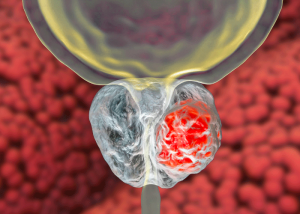 Researchers at the University of South Australia (UniSA) have identified three new biomarkers for prostate cancer, a disease that claims the lives of over 300,000 men annually. Led by Professor Doug Brooks, an international team of scientists made this breakthrough, aiding pathologists in visualizing prostate cancer in patient tissue samples. When used together, the biomarkers will assist clinicians in determining which patients require immediate aggressive treatment and which ones can be closely monitored. Pending successful review in the US, clinical trials using this innovative technology are expected to take place in Australia.
Researchers at the University of South Australia (UniSA) have identified three new biomarkers for prostate cancer, a disease that claims the lives of over 300,000 men annually. Led by Professor Doug Brooks, an international team of scientists made this breakthrough, aiding pathologists in visualizing prostate cancer in patient tissue samples. When used together, the biomarkers will assist clinicians in determining which patients require immediate aggressive treatment and which ones can be closely monitored. Pending successful review in the US, clinical trials using this innovative technology are expected to take place in Australia.
Please follow the link to learn more.
First Continuous mRNA Manufacturing Platform to Be Developed
 Researchers at the Massachusetts Institute of Technology (MIT) are leading an $82 million, three-year project funded by the US FDA to design the world’s first continuous mRNA manufacturing platform. mRNA—or messenger RNA—is a molecule that contains the instructions or recipe that directs the cells to make a protein using its natural machinery. The pilot-scale system aims to accelerate the development of mRNA technologies, improve pandemic response, and reduce production costs. Continuous manufacturing allows for non-stop production, eliminating delays caused by batch processes. By automating and streamlining production, the platform is expected to enhance the quality and speed of mRNA therapeutics, making targeted treatments for various diseases more accessible. The team will work with the FDA to ensure compliance with current good manufacturing practices (cGMP) and regulatory strategies.
Researchers at the Massachusetts Institute of Technology (MIT) are leading an $82 million, three-year project funded by the US FDA to design the world’s first continuous mRNA manufacturing platform. mRNA—or messenger RNA—is a molecule that contains the instructions or recipe that directs the cells to make a protein using its natural machinery. The pilot-scale system aims to accelerate the development of mRNA technologies, improve pandemic response, and reduce production costs. Continuous manufacturing allows for non-stop production, eliminating delays caused by batch processes. By automating and streamlining production, the platform is expected to enhance the quality and speed of mRNA therapeutics, making targeted treatments for various diseases more accessible. The team will work with the FDA to ensure compliance with current good manufacturing practices (cGMP) and regulatory strategies.
Please follow the link to learn more.
Clinical Trials in the Czech Republic: A Prominent Hub for Scientific Discovery and Cost Optimization
 The Czech Republic has emerged as an attractive destination for clinical trials, offering a strong infrastructure, supportive regulatory environment, and ethical standards. The article provides a detailed exploration of the country’s scientific and logistical advantages, highlighting its cost- and time-saving potential. Additionally, the article presents an overview of the country, demographics, healthcare system, and the reasons why the Czech Republic is an ideal choice for conducting clinical research.
The Czech Republic has emerged as an attractive destination for clinical trials, offering a strong infrastructure, supportive regulatory environment, and ethical standards. The article provides a detailed exploration of the country’s scientific and logistical advantages, highlighting its cost- and time-saving potential. Additionally, the article presents an overview of the country, demographics, healthcare system, and the reasons why the Czech Republic is an ideal choice for conducting clinical research.
The Czech Republic’s geographical location makes it a convenient and accessible destination for both local and international research. Its well-connected transportation infrastructure further facilitates the smooth conduct of clinical trials.
Please follow the link to learn more.





